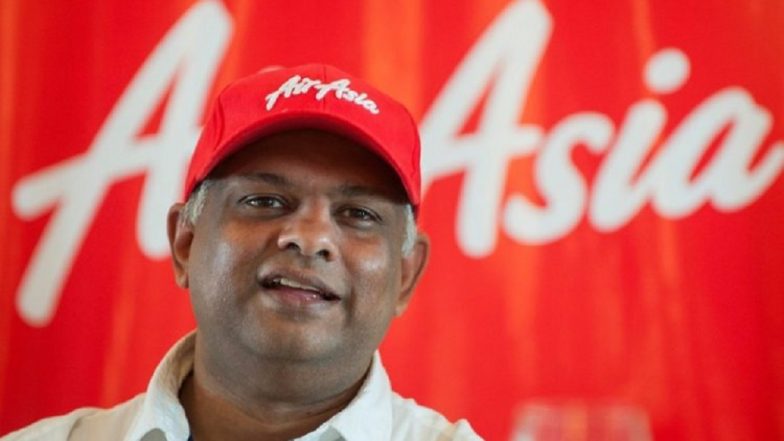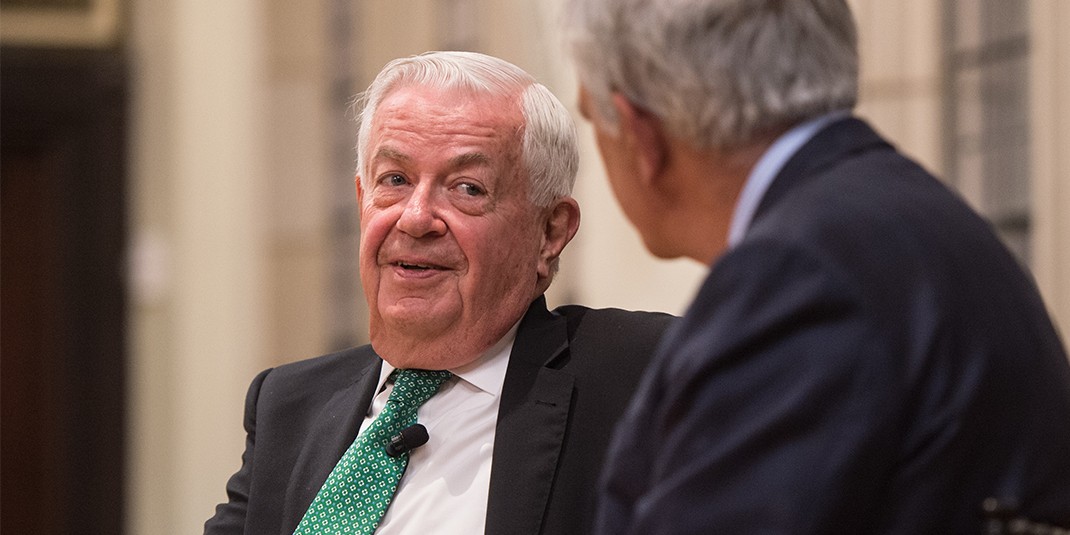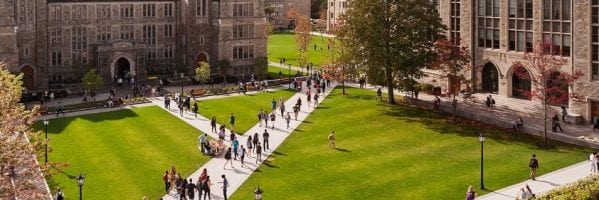The Future Time Slack Phenomenon, and More – Boston News

Let’s review the most interesting stories to emerge from Boston business schools this week, including a Harvard professor’s explanation of what exactly “future time slack” is and why you may be dealing with it on a regular basis.
Time For Happiness: Why the Pursuit of Money Isn’t Bringing You Joy—And What Will – Harvard Business Review
New research shows that even if an employee receives a promotion or raise they covet, they may feel just as discontented. Regardless of the outcome of our efforts, we all feel increasingly strapped for time, and often the things that we believe will make us happy—and that we work so hard for—don’t.
Evidence shows that “time affluence” i.e. the feeling of having enough time is at a record low in the United States. Ironically, despite the perception that people today work longer and harder, data shows that most of us have more discretionary hours than ever before. Yet we still feel starved for time.
Harvard Business School Assistant Professor Ashley Whillans writes, “In a study of nearly 40,000 Americans, when people made time-saving purchases on Saturday or Sunday (versus those who did not), they spent about 30 minutes more socializing with friends and family. That in turn promoted greater end-of-day happiness. The people who made those purchases were happier not only because they socialized more but because they derived greater joy from doing it.”
Whillans notes the behavioral factors that affect our decisions to choose money or time. “We suffer from something called future time slack—the belief that we’ll have more time in the future than we do in the present. So, we decide to make some sacrifices now with the promise of enjoying more time later. Of course, when the future comes, we don’t have more time. We just repeat the same mistake.”
You can read more about Whillans’ research here.
Expert Witnesses: Accounting and MBA Students Testify in Court – Sawyer Business School
In the Suffolk Law School Moot Courtroom, lawyers deposed Accounting and MBA students in a simulated embezzlement case. This marked the culmination of a semester of students interviewing a plaintiff and a defendant, gathering evidence, writing memos and reports and crunching numbers to determine how much money had been stolen from a fictional company.
As one student after another took the witness stand, the plaintiff’s attorney, Accounting Professor Martino Coviello, BSBA ’97, MSCJ ’04, and the defense attorney, Walter Nelepa, JD ’12, put them through lines of questioning.
Professor Coviello described the reasoning behind this simulation:
“A forensic accountant needs to keep a mindset that everything he or she does will, at some point, be scrutinized in a courtroom. So students need to understand not only courtroom procedures, but also withstand the scrutiny of a defense attorney. It never really clicks until you’re actually in a courtroom.”
Coviello notes how the courtroom simulation has a recognizable impact on the students abilities to recall and stand by their investigation. “You might have missed a date on a memo or you might have misplaced your notes, and that doesn’t seem like a problem until you’re in a courtroom and a defense attorney makes a big deal out of it.”
“He’s trying to instill doubt in the minds of the jurors by asserting that if you made a mistake on that stuff, then you must have made a mistake elsewhere in your investigation,” Coviello says.
You can read more from the article here.
Why AirAsia Boosts Marketing During a Crisis – MIT Sloan Ideas That Matter
Tony Fernandes, CEO of AirAsia recently spoke at MIT Sloan to share lessons learned about finding opportunity in adversity and building a culture around people.
Fernandes purchased AirAsia back in 2001 when the airline was $11 million in debt, turning it around to become the world’s best low-cost airline. AirAsia has weathered a range of disasters since Fernandes took charge, from 9/11 to the severe acute respiratory syndrome (SARS) outbreak, bird flu, high oil prices, and a currency crisis. Instead of panicking, Fernandes pays a visit to his advertising department. In fact, during the SARS outbreak, Fernandes tripled AirAsia’s advertising.

Tony Fernandes, CEO of AirAsia, bucked traditional trends, increasing spending during times of financial crisis, often to the company benefit.
Fernandes remarked, “Most companies cut marketing during a crisis, which is actually a huge mistake. Adversity is a great time to build a business.”
Fernandes adds that it’s important to remember that it’s always people who are the key to a company’s success, and that he is working to create a culture that reflects that.
“I probably spend 50 percent of my time walking around the office, because I think management by walking around is critical. Never lose sight that your biggest asset is the people in your organization. It’s not all about you—it’s about the whole team.”
You can read more about Fernandes and his visit to MIT here.
HBS Examines the Allure of White-Collar Crime, and More – Boston News

Welcome back and a happy 2019!
Let’s explore some of the most interesting stories that have emerged from Boston business schools this week.
Interviewing White-Collar Criminals: 6 Tips from Harvard Business School’s Eugene Soltes – Journalist’s Resource
Denise-Marie Ordway from Journalist’s Resource recently profiled HBS professor Eugene Soltes, who’s 2016 book Why They Do It: Inside the Mind of the White-Collar Criminal surveys what “drove dozens of wealthy, successful businessmen to become white-collar criminals.”
Soltes offered six tips for journalists on how to build trust and develop rapports with potential sources behind bars.
- “Don’t lead with personal questions and questions that probe into the meatiest details of a convict’s crimes.”
- “Have a plan for whether and how you’ll use sensitive information that sources might divulge once they trust you.”
- “If you want prisoners to talk to you, write them a letter.”
- “When interviewing individuals who are incarcerated, choose phone calls over in-person meetings. You can develop a rapport more quickly through four 15-minute phone calls than one hour-long, in-person conversation.”
- “Establish a system of checking your biases to limit the impact your relationships with sources could have on your work.”
- “If you’re describing someone’s feelings, opinions or mindset, consider letting that person review what you have written to make sure it represents them accurately.”
You can read more from the Soltes profile on white collar criminals like Bernie Madoff in Journalist’s Resource.
Stocks & Bonds, Eggs & Bacon – Sawyer Business School
In early December, 2018, the first Summa Breakfast at the Sawyer Business School featured Amundi Pioneer Asset Management CIO Ken Taubes, MBA ’84, who offered his insights into “where the global economy has been and where he thinks it is going.”

A look inside the Summa Breakfast, held last month at Sawyer Business School / Photo via suffolk.edu
Taubes was surprisingly optimistic: “The dollar’s been strong, and the economy’s fine. In the macro sense for consumers, it hasn’t been this good in a long time.”
He also advises attendees to “turn off the noise and look for opportunities.”
You can read more about the recent Sawyer event here.
The Billionaire Next Door – Carroll School News
Boston College’s Joseph E. Corcoran Center for Real Estate and Urban Action recently hosted billionaire philanthropist Bill Cummings, a “model real estate developer with a strong conscience,” who spoke to roughly 70 BC community members.
After an overview of Cummings’ inspiring rags-to-riches story, along with a remarkable career ascent, he urged attendees to “do the things you want to do, and do them reasonably well.”

“An entrepreneur won’t find success by getting into a putatively lucrative industry that he’s not passionate about,” Cummings said at a recent BC event. / Photo via bc.edu
Cummings was recently honored as one of the Top 50 Givers by Forbes. The Cummings Foundation, according to the article, has “awarded more than $200 million to nonprofits in the Boston area.”
“The grants have made an impact near and far, from soup kitchens and homeless shelters in Essex, Middlesex, and Suffolk counties, all the way to Rwanda, where the foundation has established medical centers in collaboration with Boston-based nonprofit Partners in Health.”
Cummings closed with a paraphrased quote from dancer and actress Eleanor Powell:
“What we are is God’s gift to us. What we become, and what we do with our lives, is our gift to God.”
You can read more about Cummings here.
Regulating Tech, Migrant Workers, and More – Boston News

Let’s explore some of the most interesting stories that have emerged from Boston business schools this week.
Will Regulating Big Tech Stifle Innovation? – MIT Sloan Newsroom
The MIT Sloan Newsroom talked to Sloan Economist John Van Reenen and Professor Emeritus Richard Schmalensee about the difficulties of regulating the titans of tech now that they have grown to “dwarf the rest of the U.S. economy in recent years.”
“You see this concentration of mega-firms across lots of sectors, like retail and logistics … and that raises issues about ‘Is this leading to a reduction in competition?’ You’re trying to protect consumers by regulating, but then you can end up taxing innovation.”
Schmalensee explains that regulations could take aim at “antitrust policy around mergers and acquisitions.”
“A lot of people have argued for being tougher on acquisitions. It’s not an extension of U.S. antitrust law or policy for that matter, to say ‘You really ought to be a little more skeptical of mergers, even with small companies, when they might grow into big competitors or have technology that can be used to make it difficult for others to compete.’”
You can read more from Van Reenen and Schmalensee here.
Reel Life Learning – Sawyer Business School Blog
The Sawyer Business School Blog recently profiled Sam Slater (MPA ’16), whose double life as an independent film producer collided halfway through his degree when he signed a five-film studio deal, beginning with the recent Mile 22, starring Mark Wahlberg, Ronda Rousey, John Malkovich, and Indonesian action firebomb Iko Uwais.
Slater explains he didn’t think twice about putting his MPA on hold.

Slater and Regina Hall on the set of Support the Girls / Photo via suffolk.edu
“Stopping the MPA just didn’t seem like the logical thing to do when there were so many accommodations being made to help me finish. Plus, I like politics. I like what goes on locally. I want to be involved. I genuinely wanted to finish the degree,” he says.
You can read the rest of the interview with the Sawyer Business School here.
Is the U.S. Losing its Ability to Attract Highly-Skilled Migrant Workers? – Harvard Business School Working Knowledge
Martha Lagace spoke with HBS Professor of Business Administration Bill Kerr about his recently released book, The Gift of Global Talent: How Migration Shapes Business, Economy and Society, which explores the “benefits and pain points of high-skilled migration.”
Kerr explains that he wanted to “uncover how this part of our business, economic, and social landscape operates and to argue, hopefully in an accessible format, for ways to make this process better.”
“The book brings to the surface both who really obtains the gift of global talent—who benefits the most from this gift—and also who does not benefit or gets hurt. I worry about the gift of global talent becoming less and less and less for the US.”
He adds, “Globally about half of skilled migrants are female. Countries and firms that want to benefit from global talent need to be able to welcome women. We explore why global talent flows matter so much, from superstar scientists to white-collar workers. There are many parts worthy of celebration, but also many parts to critique.”
Read the full article here.
Impulses, a Culinary EMBA, and Immigration Figures – Boston News

Let’s explore some of the most interesting stories that have emerged from Boston business schools this week.
How God Influences Your Grocery Bill – Questrom School of Business Blog
BU Questrom Professor of Marketing Didem Kurt recently co-authored new research with the University of Pittsburgh’s J. Jeffrey Inman and Harvard’s Francesca Gino that explored links between “grocery sales data and rates of religious adherence in thousands of counties across the country.”
According to the study, “religion and religious messages were linked to lower spending.”
People who were reminded of God’s presence were less likely than another control group to spend money on “impulse purchases such as magazines and gum,” an effect that the researchers note “persisted whether or not an individual described themselves as religious.”
Kurt explains, “We attribute this result to the notion that thinking about God reminds people of commonly shared values—such as frugality—even if they don’t believe in God. Managers may want to consider proximity to houses of worship when choosing a retail location. They need to be cognizant of the effect of religious cues and reminders on consumer spending.”
You can read the full article here and check out the complete paper on Science Direct.
A Full-Course Meal – Sawyer Business School Blog
The Sawyer Business School Blog recently profiled David Lanci, EMBA ’02, who after many years as a chef, shifted into the food services industry and founded NexDine, which offers “catering and dining services to corporations, schools, colleges, and senior living facilities around the country.”
Lanci told the Sawyer blog that his Suffolk EMBA “gave [him] the confidence to go out and start this company. One thing I really learned from my EMBA is to take a holistic view of everything and never have a singular view. It’s not just about what’s on the plate.”

NexDine founder David Lanci, EMBA ’02
Lanci continues:
“I realized that how you communicate with the people in the group has a dramatic impact on the outcome. I realized it wasn’t just out of sheer will you could get something done. You had to collaborate, and that was the aha moment for me.”
He concludes, “Food is almost the easy part. It’s just as challenging—if not more so—to manage people, manage clients, manage budgets. And in our industry, we’re not making widgets. We can’t do everything the same way for every client. Every location is different. People’s appetites are different.”
You can read the full interview with Lanci here.
Undocumented Immigrant Population Roughly Double Current Estimate – MIT Sloan Newsroom
According to new research from MIT Sloan’s Mohammad Fazel-Zarandi and Yale’s Edward Kaplan and Jonathan Feinstein, “the number of undocumented immigrants living in the country is about 22.1 million, nearly twice the most prominent current estimate of 11.3 million.”
Fazel-Zarandi explains, “It’s likely that undocumented immigrants are more difficult to locate and survey than other foreign-born residents and if contacted, they may be inclined to misreport their country of origin, citizenship, and number of household residents, fearing the legal consequences of revealing their status.”
He continues:
“A common argument in favor of a tougher immigration policy is that people who have entered the country illegally elevate levels of violent criminal activity.”
“Whatever the extent of criminality that is assessed, it’s clear that crime statistics be thought of in relation to a substantially larger population of undocumented immigrants. This lessens the risk in per capita terms. What’s acceptable for a population of 11 million is unlikely to be sufficient for a population of 22 million.”
You can read the full article here.
Analyzing Credit, Bargain Hunting and Harvard, and More – Boston News

Let’s explore some of the most interesting stories that have emerged from Boston business schools this week.
What an MIT Professor Learned Analyzing 1 Million Credit Card Offers – MIT Sloan Newsroom
MIT Sloan Professor of Finance Antoinette Schoar used her appearance on Sloan’s “Data Made to Matter” podcast to discuss what analyzing one million credit card offers revealed.
“What we seemed to find in our study is that the [credit card] offers that are offered to less educated people rely in their pricing much more on these additional fees. Late fees, over limit fees, maybe default APRs that switch on once you’ve had a default,” she says on the podcast.
Schoar adds, “While people that are more educated, their cards seem to rely much more on the quite straightforward features, like they are paying an annual fee, and they’re paying an interest rate, but they are relying much less on these late fees and over limit fees.”
She also offers this takeaway for consumers:
“The more companies can model our behavioral biases, the more they can use them in extracting rents from us or catching us in moments when we’re inattentive or when we are not necessarily focused enough on choosing the right credit card, the right mortgage, or any of these products.”
You can read the full article here.
Bargain Hunters Beware: A Store’s ‘Original Price’ Might Not Be After All – Harvard Business Week
In a new working paper, Donald Ngwe, a Harvard Business School Assistant Professor, found that the “original price” many retail stores advertise in relation to an item’s hot bargain rate is often completely made up. In fact, the practice is much “more common than shoppers might realize.”
Ngwe says, “They never even tried to sell the product at that price. Consumers could never have bought that product at that price even if they tried.”
On Amazon, for instance, he notes that almost every item has a “struck-out price, but if you look at the policy behind that price, it’s incredibly vague. This makes me think that the fake prices are working to mislead the customers who know the brand the least, and who have the least information about the brand, into making a decision they would not have made otherwise.”
Ngwe’s research found that if customers “were given verifiably fake prices,” it actually does not change people’s “evaluation of quality” since we have gotten so used to the practice.
He concludes, “My results show that customers don’t see through the ruse. Even in outlet stores where they might expect some level of false discounting, they are still very influenced by these signals.”
You can read Ngwe’s paper Fake Discounts Drive Real Revenues in Retail here or the original HBW article here.
From Sheet Music to Spreadsheets – Sawyer Business School Blog
Sawyer Business School recently profiled Craig Pellet, MST ’18, a classically trained composer who ended up with a career at Boston firm Back Bay, from a Craigslist ad he answered on a whim.
Ten years after joining the firm, Pellett feels he had a number of major gaps that made it difficult to “solve client issues” so he decided to pursue Sawyer’s Master of Science in Taxation degree to “give [him] better tools to approach every problem.”

Craig Pellet, Sawyer Business School, MST ’18 / Photo via suffolk.edu
“Music teaches you how to practice, be committed, and be focused. It puts you in the mind-set: I want to get good at this, but it’s going to take me 10 years. So it’s time to start chipping away at it,” Pellett tells the Sawyer blog.
Pellett ended up working with his tax policy instructor Professor Michaele Morrow on a research paper that explored the notion of eliminating S-corporations to make taxation more fair. Morrow described Pellett’s notion as “pretty radical.”
“I somewhat believed him but wanted to really see. So I asked him to run the numbers. Turns out, he was right.”
Their paper was recently published in trade publication Tax Notes.
You can read the full interview with Pellett here.
The Case for Business Curiosity from Harvard, and More – Boston News

Let’s explore some of the most interesting stories that have emerged from Boston business schools this week.
The Business Case for Curiosity – Harvard Business Review
Harvard Business School Professor of Business Administration and Behavioral Scientist Francesca Gino recently published an article in the Harvard Business Review in which she elaborated on the “benefits of and common barriers to curiosity in the workplace.”
Professor Gino points to research, which offers “three important insights about curiosity as it relates to business”
- Curiosity is essential to the performance of an enterprise, leading to “fewer decision-making errors, more innovation, reduced group conflict, and more-open communication and better team performance.”
- By “making small changes” to organization and management, leaders can do more to encourage their employees’ curiosity
- Leaders fear curiosity “will increase risk and inefficiency.”
To address these three insights, Professor Gino offered “five strategies that can help leaders get high returns on investments in employees’ curiosity and in their own”:
- Hire for curiosity.
- Model inquisitiveness.
- Emphasize learning goals.
- Let employees explore and broaden their interests.
- Have “Why?” “What if…?” and “How might we…?” days.
She concludes, “Maintaining a sense of wonder is crucial to creativity and innovation. The most effective leaders look for ways to nurture their employees’ curiosity to fuel learning and discovery.”
You can read more about the business curiosity research here.
Occasional Breaks Can Make Groups Smarter – Questrom School of Business News
BU Questrom’s Jesse Shore recently co-authored new PNAS research, which finds that scientists who integrate “short breaks into problem-solving sessions improves both the average performance of the group and increases the likelihood of getting the best solution.”
The study, which was co-authored by Harvard’s Ethan Bernstein and David Lazer, has “implications for the way we use always-on collaboration software, such as Slack and Google Docs.”
Shore explains, “In many of these [collaborative software tools], the goal seems to be to keep people constantly aware of what others are doing. But the reality is that if you’re getting an alert every time something happens and you’re not taking the time to work separately and have your own independent thoughts, it may hurt the group’s overall ability to solve complex problems.”
You can find the full article here.
Sound Advice: Marketing Students Help Sonos Better Understand Its Customers – Suffolk Experience
The Suffolk Experience recently highlighted Sawyer Business School marketing research collaboration with Sonos, a “go-to source for high-quality home sound systems” that just so happens to be within walking distance of campus.
To accommodate the prediction that over “50 percent of all searches worldwide will be done by voice within four years,” Sonos had thrown its hat in the voice-assistance ring with Apple’s HomePad, Amazon Echo, and Google Home. The company reached out to Sawyer to better understand how late millennial 18-to-24-year-old consumers interact with voice-assistant speakers.
Sonos Consumer Insights Manager Dennis Brosnan writes, “Sonos likes working with Sawyer Business School students because the analysis and recommendations they present are often different than the approach we would take.”
You can read more about the Sonos research here.
